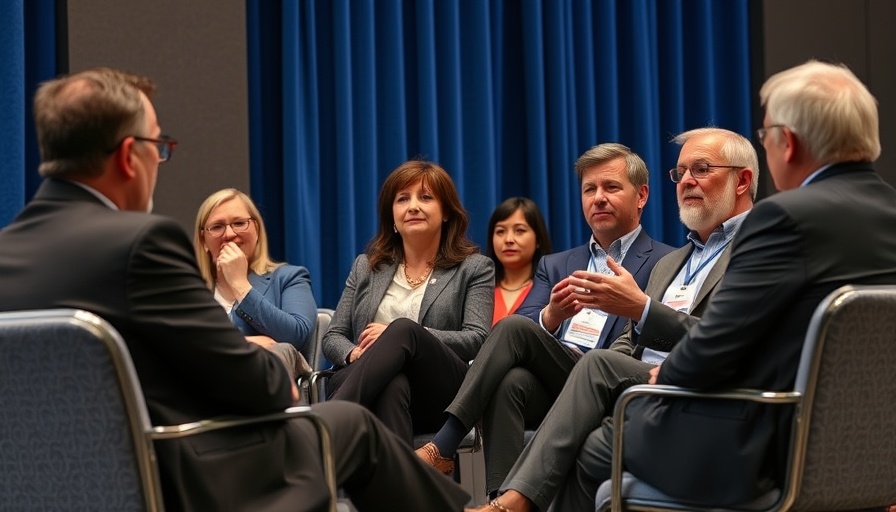
The Impact of Funding Cuts on Dallas Transit Developments
The ongoing discussion about funding cuts to public transit agencies like Dallas Area Rapid Transit (DART) and Fort Worth's Trinity Metro has sparked concern among city leaders and developers alike. At an Urban Land Institute event, both DART CEO Nadine Lee and Trinity Metro CEO Rich Andreski emphasized how pivotal these agencies are to fostering economic growth through real estate development adjacent to rail lines.
Exploring Development Opportunities Around Transit Hubs
Both executives highlighted the need for collaboration between transit authorities and developers to encourage densely built communities near transit hubs. Andreski referenced the success seen in Grapevine, where strategic infrastructure investments have spurred significant development, such as the expansion of Hotel Vin and new residential complexes. This kind of urban renewal not only enhances the aesthetics of communities but also boosts local economies.
Legislative Challenges and Potential Consequences
However, looming legislation — specifically House Bill 3187 and Senate Bill 1557 — threatens to curtail funding for DART by allowing member cities to cut their contributions by a staggering 25%. Lee expressed her fears that such legislative changes would severely damage DART's finances. "If this funding proposal goes through, obviously it would have destructive, detrimental impacts to DART," she warned, indicating that losing a quarter of revenue is untenable for any organization.
Implications for Future Transit Investments
A loss in funding could directly affect DART's capacity to undertake essential debt-funded investments, such as replacing outdated bus and rail fleets. This situation raises critical questions about how DART and Trinity Metro will successfully cater to a growing population that increasingly relies on public transit.
Collaborating for a Better Future
Despite the immediate ramifications for DART, Andreski reminded attendees that agencies like Trinity Metro might feel the effects gradually. Their long-term planning could hinge on the outcome of these legislative moves. As North Texas continues to grow, the demand for efficient public transit will only increase, highlighting the urgent need for a solid funding framework.
A Call to Action for Developers and Businesses
At the ULI event, business leaders were urged to take an active role in advocating for transit funds. Tom Huth, president and CEO of Palladium USA International, stressed that now is the ideal time to lobby lawmakers for supportive transit legislation. The collaborative spirit between developers and transit authorities can yield profitable and sustainable urban spaces that benefit local businesses and residents alike.
The Economic Ripple Effect of Transit Connectivity
Recent studies reveal a strong correlation between transit proximity and property value, with $980.1 million of residential and commercial development occurring within a quarter-mile of DART stations between 2019 and 2021. As the Dallas-Fort Worth area continues to expand, ensuring predictable funding for transit becomes crucial to maintaining this positive trend and supporting thriving local businesses, enabling them to flourish around accessible connectivity.
Conclusion: Advocate for Sustainable Transit Solutions
The discussions surrounding funding for DART and Trinity Metro underscore a critical challenge in the quest for urban development. As funding uncertainties loom, the interconnectedness of transit, real estate growth, and economic prosperity cannot be overstated. Local businesses, developers, and the real estate community have a pivotal role in urging lawmakers to prioritize sustainable transit funding to ensure a vibrant economic future for Dallas-Fort Worth.
 Add Element
Add Element  Add Row
Add Row 



 Add Row
Add Row  Add
Add 


Write A Comment